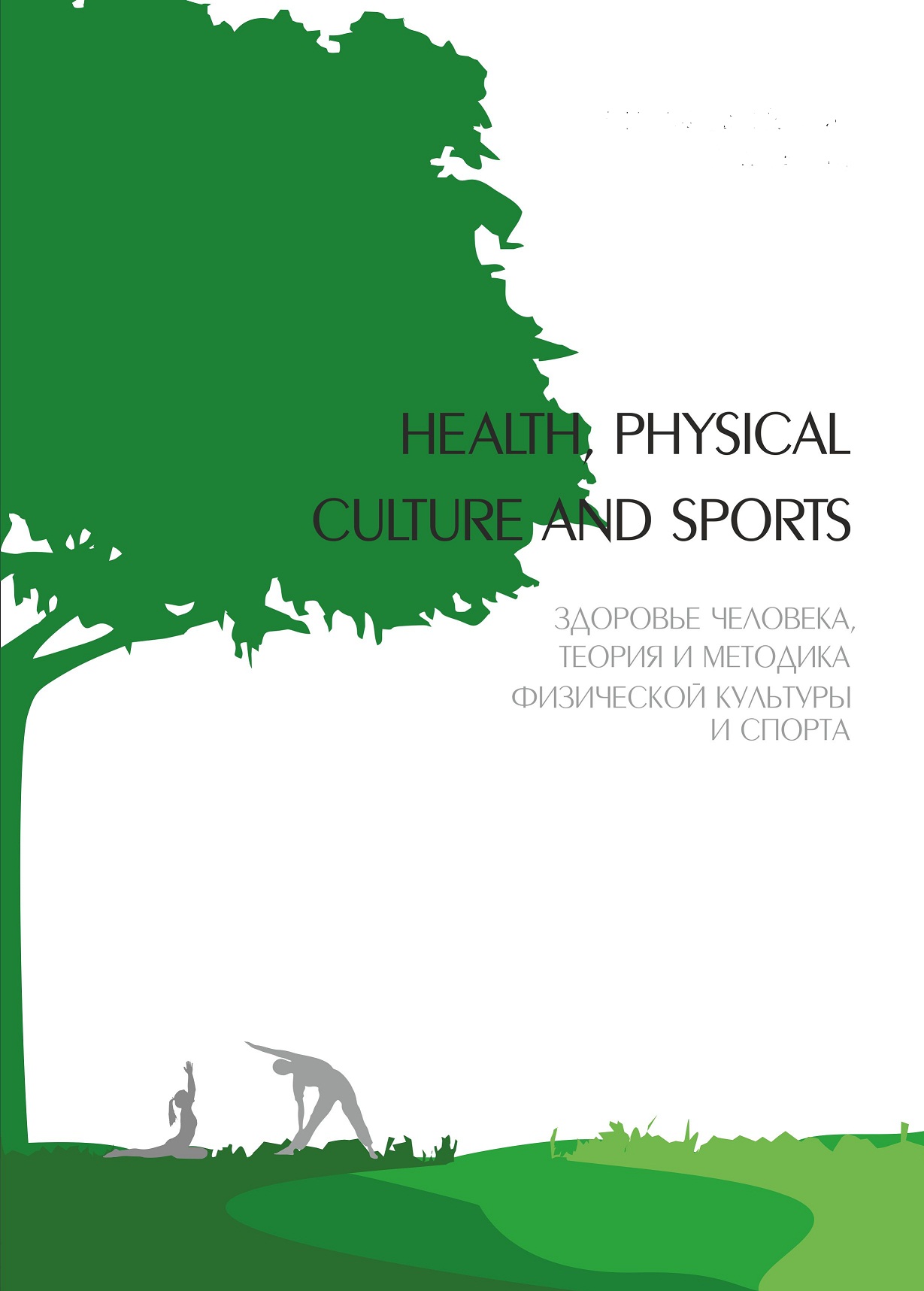Students-sportsmen's daily routine peculiarities
Abstract
The mode of the day of students is an important factor of successful adaptation to the combined effects of mental and physical activity. Students – sportsmen's, studying at Ural State University of Physical Culture, daily routine peculiarities are studied in our research. The study involved 314 students of Uralgufk. For the survey questionnaires were developed, which are decorated in Google Forms. This form allowed to collect information about the organization of the day of students in terms of mental and physical activity as quickly as possible. The research results showed an increase in the students' interest to observe the correct daily routine and healthy lifestyle formation. Daily routine components, which can be viewed as additional stress factors for the students' organism, while mental and physical loadings are performed are defined in the article. It was found that 8.3% of the students suffer sleep shortage, 17% of the students choose negative forms of conducting cultural and leisure activities (a nightclub) and 15.3% of the students irrationally plan their individual learning activities. The cumulative effect of fatigue, acquired as a result of irrationally composed mode of the day, will reduce the efficiency and competitiveness of bachelors. The alternation of mental and physical activity should take into account the individual psychophysiological state of students and contribute to the full recovery of body resources. However, it becomes a difficult task to rationally distribute the load during the day, week in conditions of intensive employment of students with a variety of activities: gymnastic, sports, volunteer, educational, competitive, professional and other. Our research results are of practical importance in the development of recommendations for correcting students' lifestyle within combined mental and physical activities conditions. When studying the disciplines of medical and biological orientation, students analyze the mode of the day, determine the shortcomings and master the skill of drawing up a healthy mode of the day for the day, week. This study will be continued and aimed at assessing the functional state of life support systems of students under intense mental and physical stress in the dynamics of training at the University
Downloads
References
Волкова В.М. Режим труда и отдыха студентов // Актуальные вопросы здорового образа жизни, теории и методики физической культуры и спорта: Матер. X Междунар. студ. науч. конф. – 2018. URL: https://scienceforum.ru/2018/article/2018001354 (дата обращения: 06.05.2019 ).
Быкова К.И. Оптимизация режима дня современного студента / К. И. Быкова, С. В. Томилова // Исследовательские инициативы студенческой молодежи как социальная практика современного профессионального образования: Матер. конф. – 2015. – С. 172-176.
Шурхавецкая Л. П. Проблема здоровья и здорового образа жизни студентов гуманитарного университета // Здоровье человека, теория и методика физической культуры и спорта. – 2016.– No1. – С. 60-64.
Коданева Л.Н. Состояние здоровья и образ жизни студентов медиков / Л.Н. Коданева, В.М. Шулятьев, С.Ю. Размахова, В.Н.Пушкина// Международный научно-исследовательский журнал. – 2016. – № 12-4(54). – С. 45-47.
Састамойнен Т.В. Психофизическая релаксация в режиме учебного дня студентов творческого вуза / Т.В. Састамойнен, В.С.Степанов // Проблемы современного педагогического образования. – 2018. – № 60-3. – С. 286-290.
Кравчук А.И. Сравнительная характеристика режима дня и организации физического воспитания курсантов и студентов сибирского юридического института ФСКН России // Теоретические и практические проблемы физической культуры и спорта: Матер. Всерос. науч.-практ. конф. с междунар. участием, посвященной 85-летию Благовещенского государственного педагогического университета – 2015. – С. 117-123.
Киданова М. С. Отношение современного студента к соблюдению правильного режима дня // Аллея науки. – 2018. – №4(20). – С. 368-371.
Макунина О.А. Режим дня студентов в условиях сочетанного влияния умственных и физических нагрузок / О.А. Макунина, Е.В. Быков, О.И. Коломиец, И.А. Якубовская // Научно - спортивный вестник Урала и Сибири –2018. –No1(17) – С. 50-55.
Сарбаева А.А. Режим дня как фактор здорового образа жизни студента / А.А. Сарбаева, Г.П. Кузнецова // Физическое воспитание и студенческий спорт глазами студентов: Материалы конф. – 2016. – С. 159-160.
Козлова Е.В. Утренняя гигиеническая гимнастика в режиме дня студента / Е.В. Козлова, Н.А. Деревянко, В.П. Ломова, А.В. Зайцева //
Физическая культура и спорт в современном мире: проблемы и решения. –2016. – № 1. – С. 45-49.
Туницкая М.Н. Физкультминутки в режиме дня студента / М.Н. Туницкая, Е.А. Райнгардт, Л.М. Жукова, С.Н. Долматова //
Актуальные проблемы современности. – 2016. – № 4(14). – С. 69-73.
Новикова Е.А. Режим дня студентов и его влияние на учебную деятельность // Центральный научный вестник. – 2018. – № 14(55). – С. 21.
Макунина О. А. Функциональное состояние нервной системы студентов-спортсменов в зависимости от организации режима дня / Здоровье человека, теория и методика физической культуры и спорта. – 2017. – №2(5). – С. 112-129.
Copyright (c) 2019 Health, physical culture and sports

This work is licensed under a Creative Commons Attribution-NonCommercial 4.0 International License.
An author should not normally publish manuscripts describing essentially the same research in multiple journals or publication venues. Such redundant publication is generally considered to constitute unethical publishing behavior, and if discovered may result in a manuscript under consideration being rejected, or a published article being retracted.
Authors of manuscripts reporting on original research should present an accurate account of the work performed, accompanied by an objective discussion of its significance. Underlying data should be represented accurately in the manuscript. The manuscript should contain sufficient detail and references to permit others to replicate the work. The fabrication of results and the making of fraudulent or knowingly inaccurate statements constitute unethical behavior and may be cause for rejection or retraction of a manuscript or published article.





